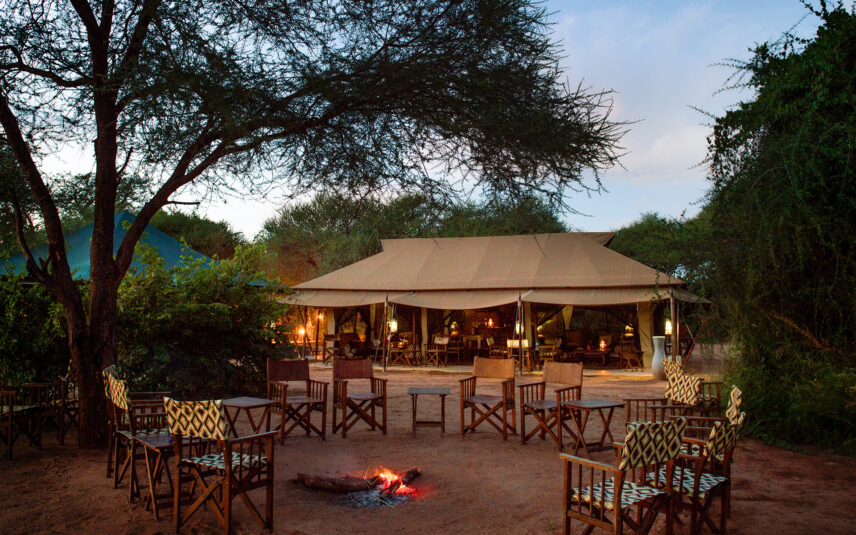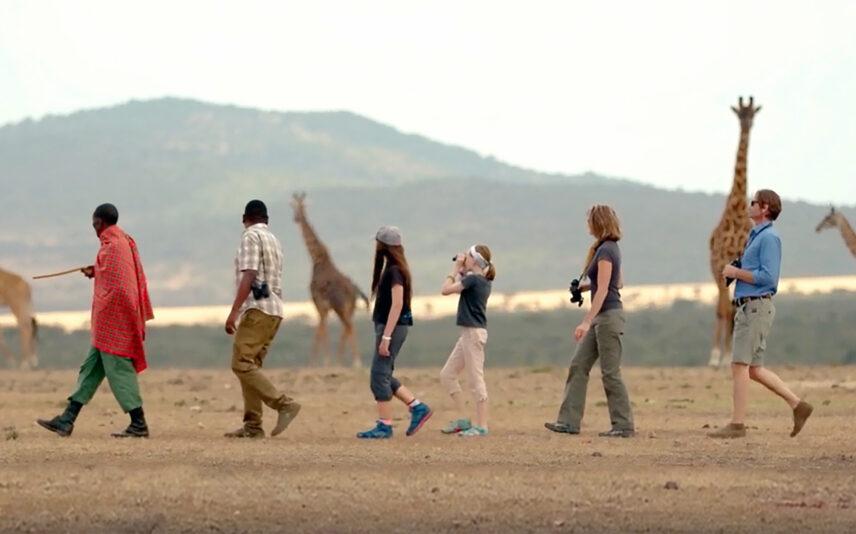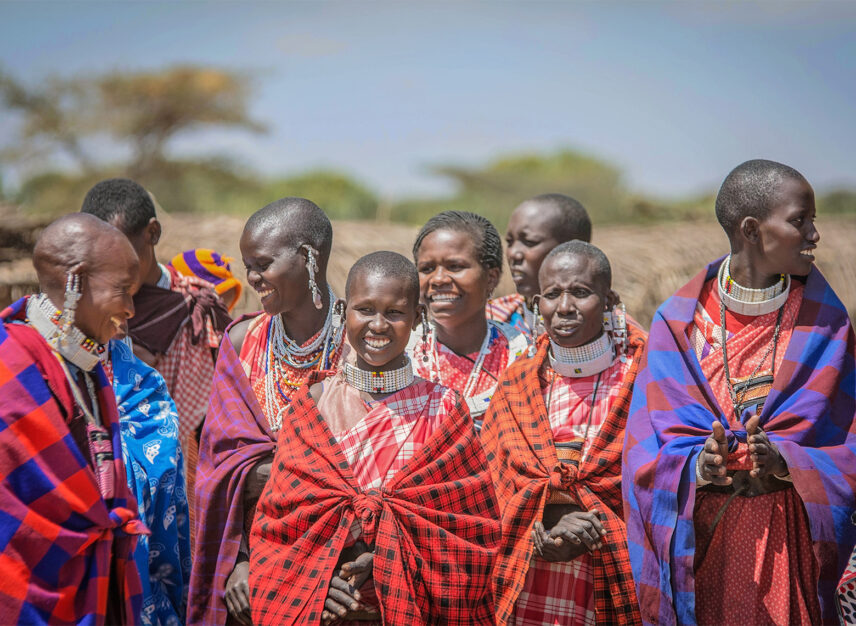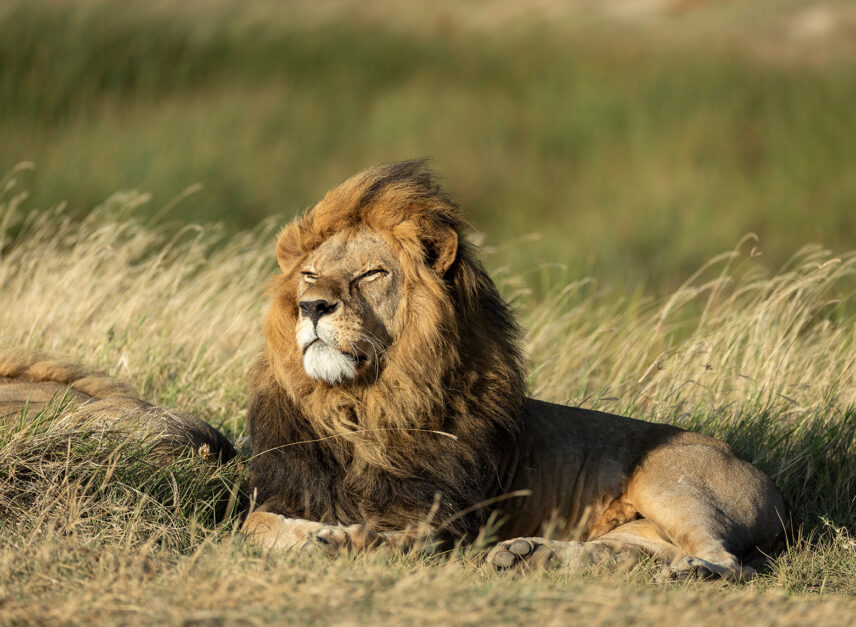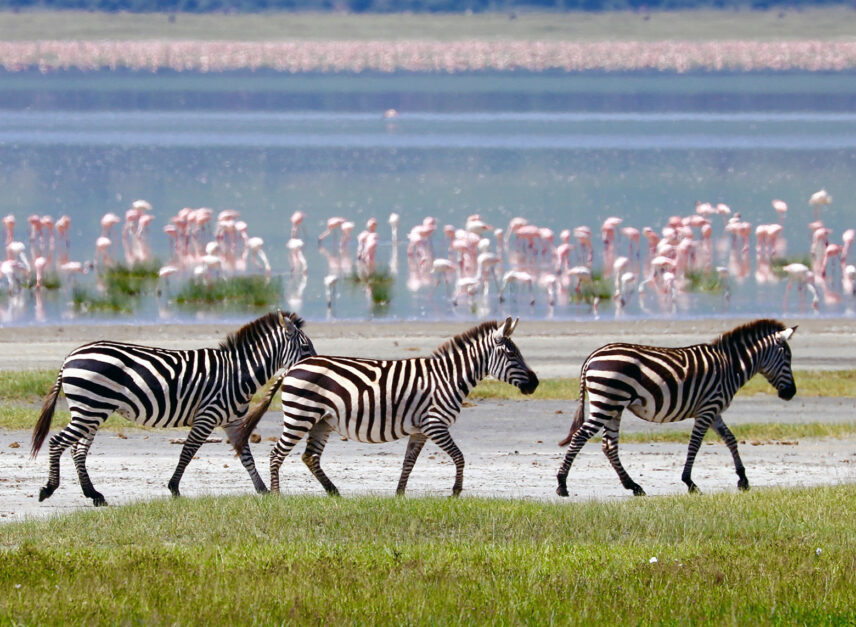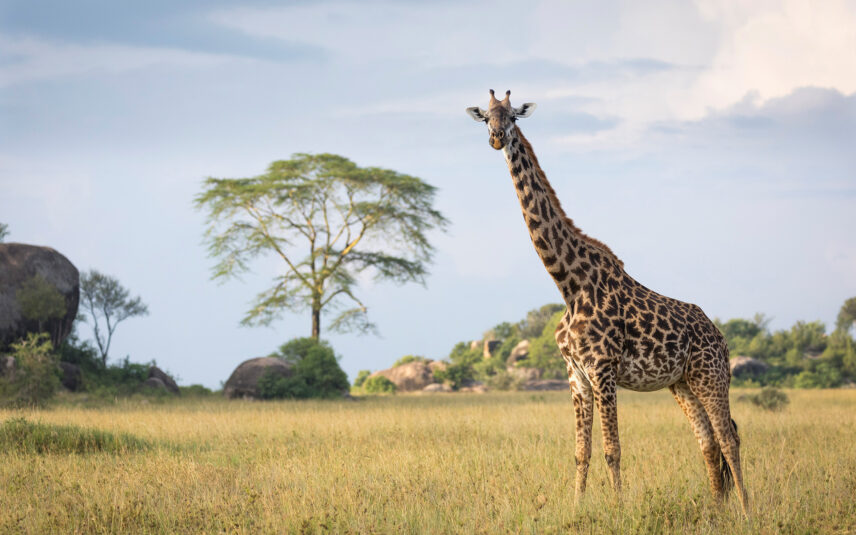What to Expect
Journey into the Wild
After more than 40 years in Tanzania, we’ve seen it all—and we’re here to make sure you’re prepared for it all. From health and safety precautions to getting ready for the food and climate, we have all the answers to your pre-departure questions.
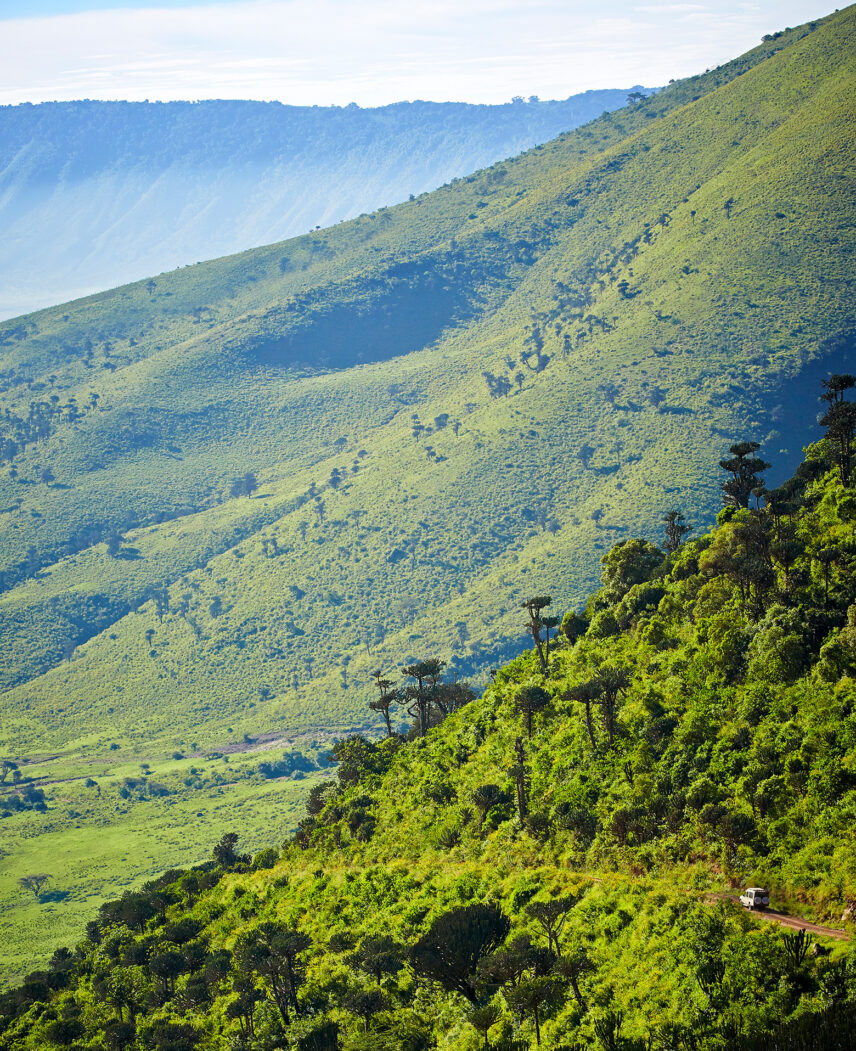
How to Get to Tanzania
We make getting to Tanzania a simple step-by-step process. Walk through the visa application process with us, verify your passport, book an international flight—and you’re on your way! You’ll find your guide at the airport holding a Thomson Safaris placard with your name on it.
Delta/KLM have by far the quickest, easiest routing: an overnight flight from North America brings you to Amsterdam for a brief layover before arriving at Kilimanjaro International Airport. Our scheduled trips and airport transfers are designed with the KLM arrival schedule in mind, so check with your safari consultants or trip managers before making arrangements with a different airline.
What to Pack on Your Safari
How we pack our bags for safari: comfortable meets durable. You’ll want casual attire you can move around and relax in—and don’t mind getting a little dirty. Once you book your safari, we’ll mail you a detailed packing list to help you prepare. In the meantime, here’s a shortlist.
-
Luggage
- Soft-sided duffel bags only
- Soft-sided day pack
- Spare foldable duffel bag
-
Clothing
- Short- and long-sleeve shirts for layering and sun/mosquito protection
- Shorts; convertible, lightweight zip-off pants; and khakis
- Fleece or insulated jacket for cool nights at Ngorongoro Crater or in the Serengeti
- Waterproof windbreaker or poncho
- Wide-brim, tie-on sun hat
- Bathing suit for lodges with pools
- Sleepwear
-
Footwear
- Running, walking shoes or light hiking boots
- Second pair of shoes or sandals
- Shower flip-flops/Teva-type sandals
-
Essentials
- Travel documents, including a valid passport with visa, immunization card (if traveling to Rwanda/Kenya) and airline tickets
- Cash and a credit card for emergencies
- Flashlight and/or headlamp with extra batteries
- Sunglasses (100% UV screening with retainer straps)
- Sunscreen and lip balm with SPF 40+
- Mosquito repellent containing DEET
- Citronella-based repellent for tsetse flies
- Anti-itch cream
- Bandanas
- Hand sanitizer and wipes
- Bath kit, including toothbrush and toothpaste; body wash; moisturizing lotion; small packet of tissues; shaving gear; tampons and panty liners—please avoid plastic tampon applicators
- Binoculars
- Money belt, neck pouch or fanny pack
Health & Safety
-
What are the COVID-19 entry requirements for Tanzania?
Thomson strongly recommends but no longer requires guests to be vaccinated against COVID-19. This decision follows the Tanzanian government’s announcement that it would no longer require vaccination for entry.
Of course, staying safe requires everyone to do their part for the good of their health, their communities and the people they visit when they travel. That’s why Thomson encourages everyone, including all Thomson staff in the U.S. and Tanzania, to stay up to date on their vaccinations.
-
What is Thomson doing to help me stay safe during safari?
Because most of your trip will be outdoors, safaris are particularly well-suited to our new era of travel. And Thomson’s common-sense approach to safety is designed to help you feel at ease without impacting your enjoyment of your once-in-a-lifetime trip.
-
What do I need to do to protect my health on safari?
Thomson strongly advises making an appointment with your travel doctor before your safari. They have specific knowledge about your destination and can recommend vaccines and preventative care that your physician may not.
Masks are not required on safari, but we recommend packing a few anyway, just in case.
-
Are safaris in Tanzania safe?
Tanzania is one of Africa’s most stable countries. Some even refer to it as “the Switzerland of Africa”! You’ll be welcomed by its friendly people and always taken care of by attentive staff. After full days of wildlife viewing, rest up at handpicked camps and lodges, which offer authentic African charm and modern-day conveniences.
-
Is it okay to drink the water?
There is free bottled water at all Nyumba camps and during all wildlife-viewing drives. You can also purchase bottled water at all lodges.
-
Are there a lot of bugs in Tanzania?
There are more bugs in many places in the U.S. than you will encounter on safari! As in North America, DEET-based repellents and citronella-based products work well if you encounter mosquitoes or other small insects.
-
What shots should I get?
For medical advice, it’s always best to consult your doctor. Most travelers get antimalarial pills. Keep in mind that you’ll be staying in camps and lodges designed to accommodate American and European guests.
Food & Climate
-
What’s the food like on safari?
At the Nyumba camps, chefs prepare fresh soups, breads, entrees and desserts daily, and we get incredible reviews! In most lodges, meals are served buffet-style. The food is often prepared with Western palates in mind (some local dishes are included).
-
Can special diets be accommodated?
With advanced notice, vegetarian, vegan, gluten-free, and diabetic-friendly meals can easily be arranged. Make sure to inform us when booking your trip.
-
What’s the weather like in Tanzania?
Tanzania’s climate is typically sunny, dry, and warm, though there are variations:
- April, like in North America, usually brings more rain, so we do not operate scheduled trips during that time.
- December through March is warmer (70ºF–80ºF) with a higher chance of occasional rain.
- May through November is cooler and drier (60ºF–80ºF).
Wildlife
-
Where is the best place to go for wildlife viewing in Africa?
Northern Tanzania! Ngorongoro Crater, a UNESCO World Heritage Site, has one of the greatest concentrations of wildlife in the world. The vast plains of Serengeti National Park also host a myriad of wildlife and the legendary Great Migration.
-
What kinds of animals will I see on safari in Tanzania?
All kinds! You will see the animals you’ve always dreamed of encountering on safari—zebra, elephant, hippo, giraffe, lion, warthog, wildebeest, rhino, and so much more.
-
When is the best time of year to go on safari in Tanzania?
Tanzania has the best year-round wildlife viewing, and we adjust our itineraries, departure dates, and accommodations based on wildlife migration patterns. In Tanzania, any time is a wonderful time to go on a safari. Of course, there are seasonal variations, but you’ll always see a lot of animals.
-
What is the Great Migration?
The Great Migration is a year-round phenomenon where millions of mammals, mainly wildebeest, gazelle, and zebra, move around the Serengeti in a clockwise pattern in search of food and water. The driving force of the migration is rain, making it difficult to predict.
-
What if I don’t see the Great Migration during my safari?
Hakuna matata! No worries! Plenty of awe-inspiring moments present themselves whenever you travel in Tanzania. Even if you don’t happen to see the Great Migration, you’ll still see an abundance of wildlife.
